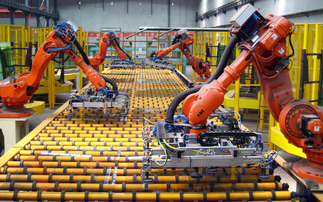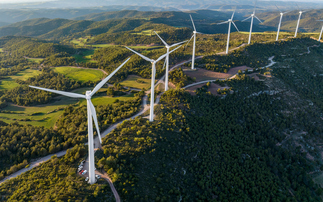Antoine Cahuzac says government cuts to wind and solar subsidies have forced renewables companies to make clean energy more competitive
Antoine Cahuzac, the chief executive of EDF's renewable arm, has claimed the government's recent cuts to subsidies for renewable energy have forced clean energy firms to become more competitive.
Speaking at an event in London yesterday, he said changes to renewable subsidies have created a tougher market for clean energy developers than it was in the past, but said there was a "good aspect" to the changes.
"It forced all companies involved in renewable energy to improve the competitiveness of renewable energy," he said, answering questions from BusinessGreen.
Last month, EDF announced it would double its global renewables capacity from 28GW today to 50GW by 2030. Cahuzac said he was confident the cost of renewables would fall fast enough to make this achievable, regardless of subsidy changes in individual markets.
"When we assumed that we will move from 28GW to 50GW it was because we know for sure that the competitiveness [of renewable energy], whether it's for wind or solar, will improve dramatically in the coming years," he said. "And therefore, despite a change of policy in a given country, and even the fact that the subsidies to this sector are lowering around the world, we are truly confident that it will work.
"As an example, we are building in various parts of the world renewable assets which are directly exposed to market risk, without any kind of subsidy," he added.
Cahuzac was speaking at the launch of a new report from PwC and the World Business Council for Sustainable Development (WBCSD). The report analysed the climate ambitions of nine industries set out by business working groups as part of the WBCSD's Low Carbon Technology Partnerships initiative. It found that if fulfilled, the nine climate plans set out by the working groups could deliver 65 per cent of the emissions cuts needed to put the world on a path to 2C of warming.
His comments came after Lord Deben defended the government's green policy rollbacks, admitting that the Climate Change Committee (CCC) that he chairs vastly underestimated improvements in offshore wind farms and the subsidies they would use up.
"The efficiency in offshore wind turned out to be much greater than anything we thought," he told BusinessGreen. "That was a mistake in the calculations which arose simply because technology has improved so much. Because of the certainty of the market, the huge change in the cost of offshore wind, as with solar, has been remarkable."
The government has faced fierce criticism over the past few months for its raft of green policy changes, which have been blamed for putting thousands of jobs at risk in the energy efficiency and solar sectors.
However, the government has consistently argued that the subsidy cuts were necessary to prevent a project overspend of the Levy Control Framework (LCF) - the government's budget for clean energy projects - and insisted it wants to see the renewables industry "stand on its own two feet".










